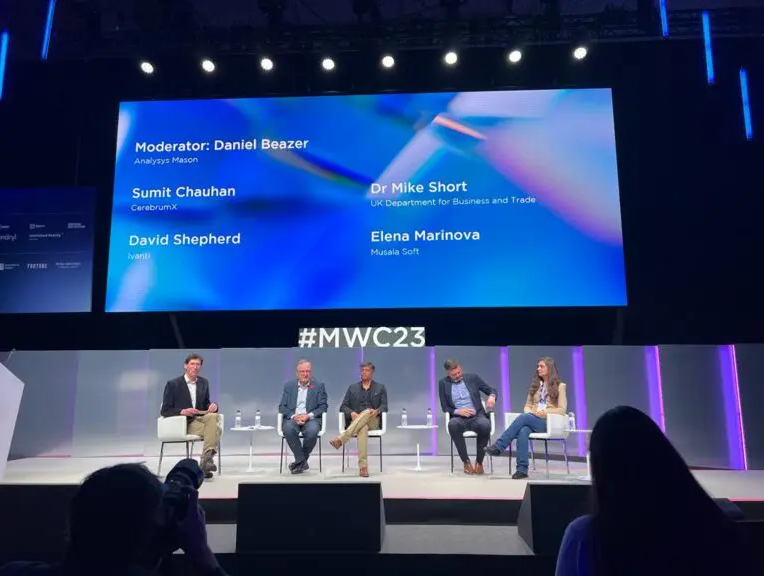*By Vinícius Boemeke
Self-driving cars, remote surgery, smart energy management, robots and drones in disaster areas — possibilities that are likely to make the world a better place. But for that to happen we need the best connectivity, enabled by a robust network with agility and scalability.
On the second day of lectures at the Mobile World Congress (MWC), in Barcelona, I followed the debate on Artificial Intelligence (AI) conducted by Daniel Beazer (Analysis Mason), and the presence of Cristina Rodriguez (Intel) and Nukhet Kayahan (Microsoft).
We know that with AI and robust networks it is possible to react, predict and take action in real time. The evolution of artificial intelligence is a topic that has been much discussed in recent times, and in fact companies are increasingly betting on how to optimize their services so as not to waste time and optimize resources.
Unlike the main question – Can artificial intelligence think for itself? – we have been seeing several examples where AI can be used as an important ally in people’s daily lives, especially in corporate environments.
Today, we can see the migration from a probabilistic intelligence to a more humanized way of thinking, which reinforces the advantage of using technology in everyday life. As an example, I talked to a very highly qualified engineer who finds it hard to write emails, especially in a formal environment. He started using chatGPT as a way to streamline his personal process of composing messages. Passing information and context to the AI, it quickly returns with a result that significantly speeds up the writing time of an email, in addition to reducing the insecurity and anxiety that this activity can bring.
Even if it is necessary to review and correct some points of the message, it is evident that, for some activities and tasks, this more humane way can enhance productivity.
It was also possible to follow other cases of use of new technologies that should soon spread and be increasingly present in our routine.
One of the speakers at the event even performed a test asking two different AIs to create slide templates for him to use at MWC 2023. In this experiment, the significant difference in maturity between the two tools was clear.
For many professionals, visual creation, such as a presentation, can be hard and take a lot of time. Imagine the ease of not worrying about developing templates for a presentation, and thus focusing on structuring the knowledge/content that will be shared?
It was clear to me that in the near future we still will not have an artificial intelligence that thinks by itself. However, those who adapt to it and use it for specific purposes must boost their production capacity a lot, reducing the time and effort to perform operational tasks, and quickly increasing the capacity for more practical analyzes, such as data, numbers, reports etc.
I believe we should stop worrying about issues like: ‘will I lose my job and be replaced by AI?’ Rather, we seek ways to use artificial intelligence to leverage our professional value, devoting time and effort to strategic issues and delegating less valuable things to technology.
As beautifully commented by Roger Frigola, optimization engineer at Emirates Team New Zealand, who is using a virtual assistant in his day-to-day life, “I don’t know if the AI will be able to think for itself, but I’m sure it will help me to be a better thinker”.
*Vinícius Boemeke is the CEO at Pulsus



